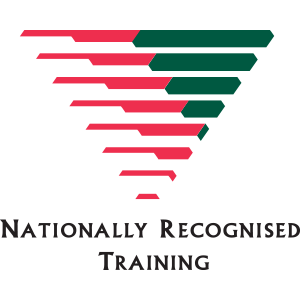Certificate IV in Work Health and Safety
Sorry, this course is not available for international students.
If you are a local student you may be eligible.
To find a course that's available to international students, please visit the search page:
Overview
6 months full time / 12 months part time
February, July, October
February
Become an asset to any industry
Work Health and Safety (WHS) is a valuable skill set applicable to all workplaces in Australia. Work-related injuries, diseases and fatalities cost Australian businesses over $60 billion a year, and WHS specialists are in high demand. A Certificate IV in Work Health and Safety BSB41419 from Melbourne Polytechnic can open doors to a wide choice of workplaces. Health and safety specialists are assets to their industries and a portable range of skills can help you make a meaningful contribution to many workplaces, from construction sites through to large corporations.
Practical learning opportunities
The Certificate IV in Work Health and Safety covers all key WHS areas, including compliance with WHS law, hazard identification, incident response and management. You will learn practical skills with qualified teachers currently working in WHS, who can pass on industry insights and guide you through our unique practical education. Your teachers can help you with building career paths, assist with networking opportunities and mentor you throughout the course.
Graduate ready to make a difference
Melbourne Polytechnic WHS graduates are industry-ready, prepared to make a meaningful impact on their workplaces. You will be qualified to work as an enterprise based WHS officer, coordinator or advisor, specialising in fields such as legislation, hazard identification and risk control, emergency and incident response, systemic WHS management, claims management, rehabilitation and return to work programs. You may choose to build on this qualification and develop your career in WHS, moving in the design and management of WHS programs, and becoming a leader in the field.
Career Pathways
Where will the Certificate IV in Work Health and Safety BSB41419 take me?
You may build on this qualification and subsequent work experience to develop your career in work health and safety, taking on greater responsibility and moving from the implementation of WHS programs to their design and management.
- WHS Officer
- WHS Coordinator
Study Pathways
Successful completion will enable you to go on to further study in Work Health and Safety.
Course Details
Delivery methods
6 months program: On-campus / Virtual classroom.
12 months program: On-campus only.
How you will study
Each course has a dedicated learning method that is designed to let you thrive in your studies.
On-campus / Virtual classroom
A blend of both face-to-face and virtual learning with scheduled classes taking place on-campus and in virtual classrooms. Visit the How You'll Study page for more information.
Class Schedule
The Certificate IV in Work Health and Safety BSB41419 is available as a 6 months part-time program or a 12 months part-time program.
6 months program: Monday and Wednesday 6pm - 9pm.
12 months program: Wednesday 6pm - 9pm, 3 times per month
Assessment Methods
A variety of engaging and practical assessment methods are used to enable you to demonstrate competency. These may include reports, presentations, audits, tests, case studies, demonstration and observation and practical activities.
Units of Study
The hours displayed are nominal, actual classroom hours delivered may differ. Please contact us for the latest student contact hours information.
| Code | Subject | Elective | Hours |
| BSBSTR402 | Implement continuous improvement | Elective | 40 |
| BSBWHS412 | Assist with workplace compliance with WHS laws | Core | 40 |
| BSBWHS413 | Contribute to implementation and maintenance of WHS consultation and participation processes | Core | 40 |
| BSBWHS414 | Contribute to WHS risk management | Core | 60 |
| BSBWHS415 | Contribute to implementing WHS management systems | Core | 50 |
| BSBWHS416 | Contribute to workplace incident response | Elective | 40 |
| BSBWHS418 | Assist with managing WHS compliance of contractors | Elective | 40 |
| BSBWHS419 | Contribute to implementing WHS monitoring processes | Elective | 60 |
| BSBWHS431 | Develop processes and procedures for controlling hazardous chemicals in the workplace | Elective | 50 |
| BSBWRT401 | Write complex documents | Elective | 50 |
Attend an Information Session
Fees & Costs
| Free TAFE | Concession | Government subsidised fee | Non-subsidised fee | |
|---|---|---|---|---|
| Tuition fee | $0 | $250 | $1250 | $4600 |
| Maximum annual amenities | $250 | $175 | $250 | $250 |
| Total payable | $250 | $425 | $1500 | $4850 |
| Per year | $0 |
| Per semester | $0 |
The student tuition fees as published are subject to change given individual circumstances at enrolment.
Displayed course fees are indicative only. There are many variables that impact the total amount of your full course costs including qualification for government subsidies, concessions or recognition of prior learning. Tuition fees do not include the cost of student amenities or material costs.
This training is delivered with Victorian and Commonwealth Government funding. Contact us to find out if you’re eligible for a Government subsidy.
Melbourne Polytechnic offers a range of payment options to help you pay your tuition fees, so you can get on with your studies.
Fees displayed are effective for new applications received on or after 1st of November. Tuition fees do not include textbooks, course materials or overseas student health insurance and visa fees.
After initial deposit, international students are able to pay tuition fees in installments, four times per year.
For more detailed information please read the International Student Fees.
Fees explained
The State Government’s Free TAFE for Priority Courses initiative covers the cost of tuition (excluding Amenities Fees and Materials Fees) for students who are eligible for government subsidised training and enrol into one of the Priority listed course.
Free TAFE is available to eligible students for one course enrolment in a lifetime.
Free TAFE places are limited. Please call 1300 635 276 and we can advise you whether Free TAFE places are still available.
Free TAFE for Priority Courses initiative covers the cost of tuition fees for students who are eligible. Materials and amenities may still apply.
The Free TAFE for Priority Courses initiative will pay your tuition fees for only one course. Once you have commenced in a tuition-free priority course, you are not eligible for further tuition-free places again, even if you do not finish your first tuition-free priority course.
The fees for those ineligible for a government-funded enrolment.
The cost of tuition for those eligible for government funding.
Concession fees are charged at 20 per cent of the standard fees for enrolments in Certificate I to IV courses. To be eligible students must meet Skills First eligibility criteria and present a valid:
- Commonwealth Health Care card, or
- Pensioner Concession card, or
- Any dependent spouse or dependent child of one of the above cardholders, or
- Veterans Gold card.
The following groups are eligible for concession fees from Certificate I to Advanced Diploma level:
- Aboriginal and Torres Strait Islander students
- Asylum Seekers and victims of human trafficking
Additional expenses
The Student Services and Amenities Fee is charged at forty cents (40 cents) per student contact hour and is capped over a twelve (12) month period, effective from the enrolment date, to:
- $250 for full fee-paying students; and
- $175 for concession-paying students studying Certificate I, II, III, or IV.
Amenities fees are used to improve non-academic services including libraries, counselling services, student support, and recreational activities.
Requirements
There are no prerequisites or entry requirements for this qualification. Participants are required to have a good command of both written and spoken English as well as effective communication skills. Basic computer skills such as web use, word processing, presentation software and e-mail are preferred.
As a general guide to entry, learners will be best equipped to achieve the course outcome if they have a minimum level of literacy and numeracy skills equivalent to the Australian Core Skills Framework (ACSF) Level
- Reading - ACSF Working Level 4, Numeracy - ACSF Working Level 3
All potential learners will undertake a pre-training review and an LLN assessment to determine:
- The learner’s ACSF level and any additional support requirements to enable the learner to undertake the course and achieve the course outcomes
- The learner's interest and/or relevant experience
- The learner's previous educational achievements and experience
- The learner's level of Digital literacy
Next Steps
The first step to enrolling is completing the application short form from the Apply Now page.
After you complete that form we will send you an email with a link to an application form webpage. If you don’t receive the email, check your spam and junk folders.
Complete the application form on the application form webpage.
You will be required to complete an online literacy and numeracy assessment.
Once you are ready to enrol, you will be invited to attend an enrolment appointment over the phone or on campus.
For certificate-level courses, you can pay by weekly or fortnightly direct debit using our Tuition Payment Plan. Read more about Tuition Payment Plans here.
If you need assistance with your application and the next steps, you can contact one of our Education and Course Advisors on 1300 635 276 or follow a step-by-step guide to enrolling for vocational education local students.

We're Victoria's Large Training Provider of the Year
Study with Melbourne Polytechnic, proud winner of Victoria’s 2024 Large Training Provider of the Year! Recognised for our innovative programs, industry partnerships and commitment to student success, we’re here to help you build the skills for a thriving future.
Recognising Organisations

Nationally Recognised Training This course is government accredited and has national recognition.
Local student means; you are an Australian citizen or permanent resident, a New Zealand citizen or a permanent humanitarian visa holder.